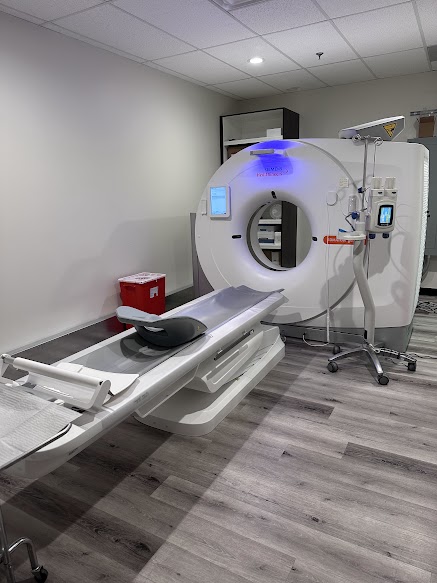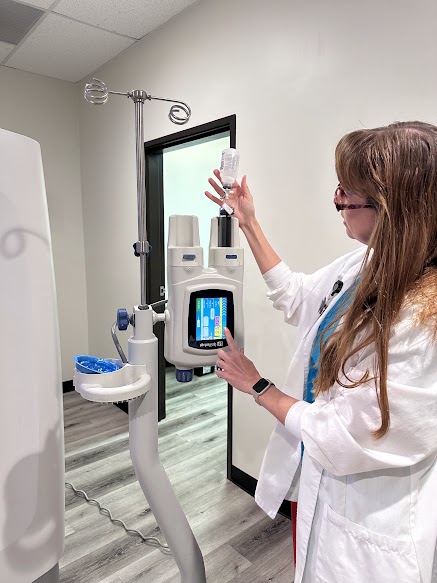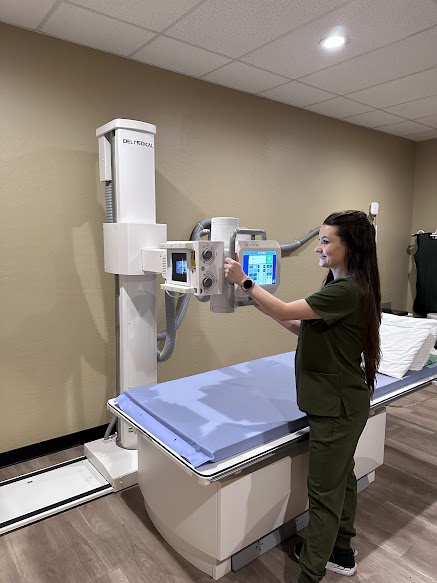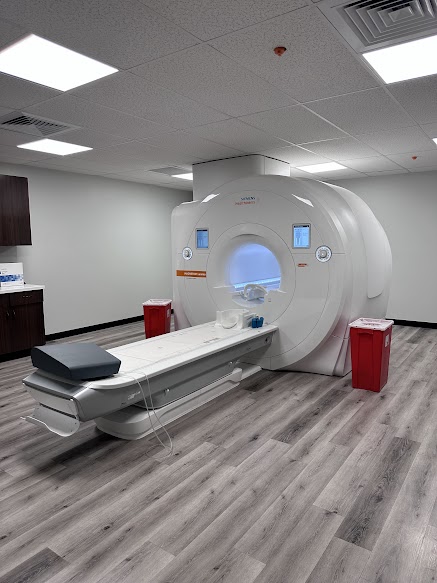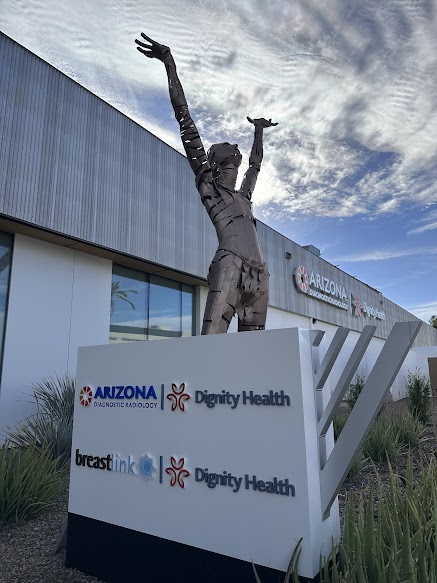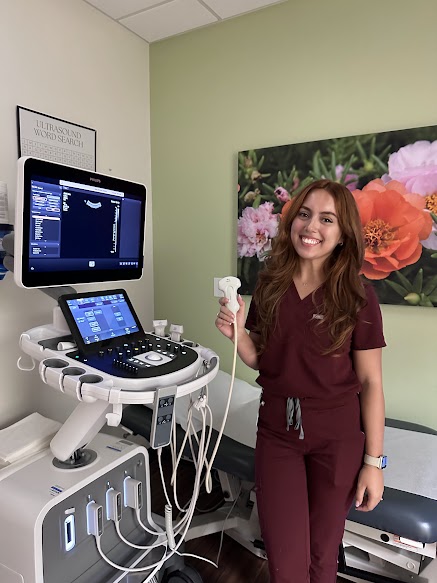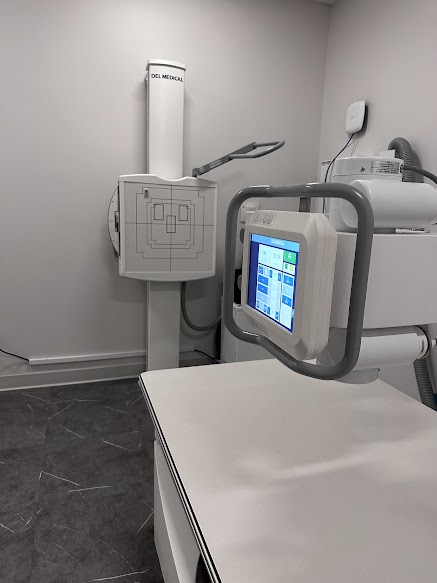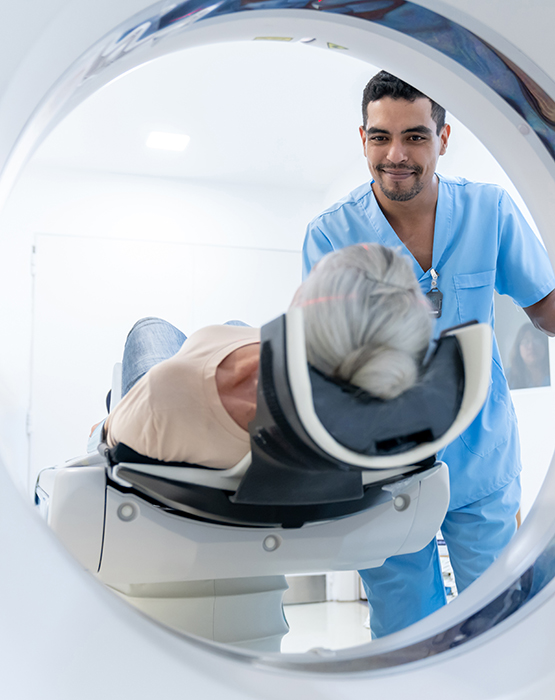
Low-Dose CT Lung Cancer Screening
Lung cancer remains the leading cause of cancer death in the United States. And while the numbers of new lung cancer cases and deaths from lung cancer continue to decrease, nearly half of lung cancer cases are diagnosed at a late stage, when the disease has spread from the lungs to other organs. At this point, treatment is less likely to be successful, because the key to surviving cancer is finding it in its earliest stage.
The most effective way to find lung cancer at its earliest stage is with a low-dose CT lung cancer screening. In fact, screening people who are at high risk for lung cancer annually with a low dose chest CT can reduce the death rate from lung cancer by 20%.
What is Low-Dose CT Screening?
Low-dose computed tomography (LDCT) screening for lung cancer is a specialized test that is used to find lung cancer before it is symptomatic and before it has spread.
The exam itself is quick and easy. While lying on your back, you are moved through a small donut-shaped machine – not a tunnel – so there is no worry of feeling claustrophobic. There are no needles for contrast or x-ray dye, and no need to fast before the exam.
Most importantly, this screening test is covered by almost all insurance plans for most people at high risk.
How do I know if I am a Candidate for Low-Dose CT Lung Screening?
There are a few factors used to assess candidacy for this screening, all of which involve your smoking status:
- You have at least a 20 pack-year smoking history (meaning, ½ pack per day for 40 years, 1 pack per day for 20 years, 2 packs per day for 10 years, etc.)
- You currently smoke or have quit smoking within the last 15 years
- Are 50 to 80 years of age.
What are my Risks for Lung Cancer?
A “risk factor” is anything that increases a person’s chance of getting a disease, like cancer. Some risk factors are “modifiable,” meaning, they can be changed. Others, like a person’s age or family history, cannot be changed – they are “non-modifiable.” It’s important to realize however, that having a risk factor, or even several, does not mean you will definitely get cancer. Likewise, some people who do get cancer may have few or no risk factors at all.
Modifiable Risk Factors for Lung Cancer
- Smoking - Smoking is by far the leading risk factor for lung cancer. 80% of lung cancer deaths are thought to result from smoking. Cigar and pipe smoking are also likely to cause lung cancer.
- Secondhand Smoke - Even if you don’t smoke yourself, breathing in the smoke of others can increase your risk of developing lung cancer. Secondhand smoke is thought to cause more than 7,000 deaths each year.
- Exposure to Cancer-Causing Agents - Radon, which is still found in some homes and buildings; asbestos, which may be present in some workplaces, such as mines, mills, textile plants and places where insulation is used; chemicals, such as those found in labs, and diesel exhaust – all of these substances, when inhaled regularly, can cause lung cancer.
Non-Modifiable Risk Factors for Lung Cancer
- Previous Radiation Therapy to the Lungs - People who have had radiation therapy to the chest for other cancers are at higher risk for lung cancer, especially if they smoke.
- Air Pollution - In cities, air pollution seems to raise the risk of lung cancer slightly. Some researchers estimate that worldwide, about 5% of lung cancer deaths may be due to outdoor air pollution.
- Family History - If you have had lung cancer in the past, you have a higher risk of developing another lung cancer. Close family members, such as brothers, sisters and children of people who have had lung cancer may have a slightly higher risk of lung cancer themselves, especially if the relative was diagnosed at a younger age. Researchers have found that genetics seem to play a role in some families with a strong history of lung cancer.


